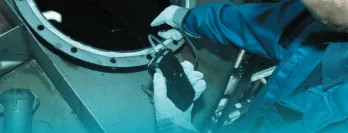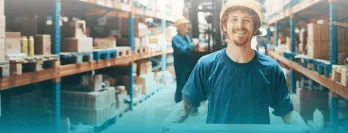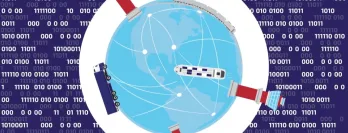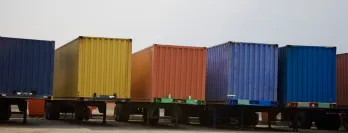

Customs Challenges | Transport & Logistics
Logistics and transportation companies often struggle with their customs clearance due to complex customs processes as well as ongoing changes in customs regulations and the classification of goods. It is crucial to ensure the correct classification of goods to calculate the correct customs rates and taxes and help use the appropriate trade agreements.
However, when transportation companies lack customs knowledge, they risk making mistakes that can be expensive to redeem.
Another hurdle when it comes to customs clearance is the preparation of customs documents, which can be lengthy and have to be filled out precisely, since errors or incompleteness can lead to delays and penalties.
Import and export compliance represents another challenge for logistics and transportation companies, as destination countries have different regulations that must be met. Companies that are unable to comply with these regulations can face heavy fines and delays in transportation.
Customs Solutions | Transport and Logistics
Customs Support offers expert customs advice and services to improve customs processes in the transport and logistics industry, enabling them to overcome customs processing challenges.
Our customs experts can advise you on:
- Planning and implementing your customs clearance
- Handling customs formalities and monitoring compliance with import and export regulations
- Classification of goods and determination of customs rates and taxes
- Verification of the accuracy and completeness of customs documents and invoices
- Increasing efficiency and reducing operating costs through a fast and effective customs process in logistics

Frequently Asked Questions | Transport and Logistics
What are the main challenges logistics and transportation businesses face when it comes to customs clearance?
Complex customs regulations and the need for seamless coordination of logistics service processes make customs clearance in the transport and logistics industry challenging. Work with our customs experts - they have extensive industry knowledge and can offer you customised solutions to overcome your challenges.
How does Customs Support help transport and logistics companies with customs clearance?
Our customs experts support transportation companies with the processing of customs formalities, the monitoring of import and export regulations and the classification of goods. In addition, they can assist with the preparation of customs documents and advise on compliance with industry-specific regulations, significantly helping streamline the customs clearance process.
How can I ensure that my transport and logistics service processes run smoothly?
Smooth customs processes in the logistics service industry rely on comprehensive expertise and specific industry knowledge. Our customs experts offer individual solutions to help meet your specific requirements and optimise your customs processes. By monitoring and controlling your customs processes with our state-of-the-art technology, we can minimise the risk of delays or penalties.
How can digital technologies streamline my customs operations in the logistics service industry?
Our digital technologies allow us to provide timely and accurate customs services that help optimise customs clearance processes in the logistics service industry. Our customs specialists use state-of-the-art customs software to automate and speed up customs processes, reducing the risk of delays or penalties for our customers.
What are the benefits of full-service customs services for transportation companies?
Full-service customs services can offer transportation companies tailored solutions to help them handle their customs matters efficiently and smoothly. Using the latest customs software and expertise, our Customs Support experts can deliver timely and accurate results, helping you save time and money.
Customs Support Offers End-to-End Customs Services

Full-Service Customs Expertise
We have it covered end-to-end: everything from processing declarations, consultancy to supply chain optimization

Experienced Customs Specialists
Our 1900+ experts with over 20+ years of industry experience ensure the highest compliance standards

Digital Customs Solutions
Our cutting-edge IT solutions enable you to monitor all processes 24/7, while we adapt to digital trends to ensure your security standards

Global Knowledge, Local Presence
We link your local customs needs to our global network of professionals across 100+ strategic locations in Europe
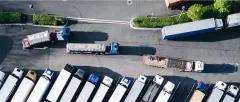
Transport & Logistics
Acquisition of Société Phocéenne de Transport et Transit (“SPTT”) Strengthens Presence in France
Customs Support, the neutral and dynamic partner for customs matters in Europe, announces the acquisition of SPTT. With this acquisition, Customs Support strengthens her presence in France and underpins the ambition to be in close proximity to her clients.
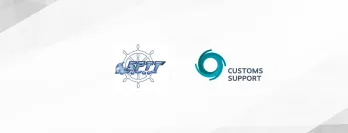
What is Smart Declaring?
Customs Support has the systems and software required for smart declaring processes. When you use smart declaring, you don’t have to send your data to every Customs Authority for every customs document needed to get your goods from your supplier to your end customer.

The Suez Canal Blockade and the Effect on Your Supply Chain
March 23rd was a day everybody in supply chain and logistics will remember for a long time. The Ever Given, a 400-meter long container ship, ran aground in the Suez Canal. The Ever Given is a Gold-class container ship with a capacity of 20,000 containers. What caused the vessel to run aground is still under investigation, but the heavy winds were a factor for sure.
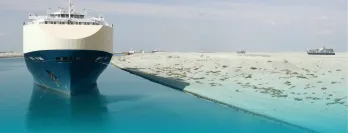
The Importance of Measuring Gas in Shipping Containers
90 Percent of the world’s cargo is transported by shipping container. The number of containers keeps increasing. In 2019 the total throughput was 800 million TEU. TEU stands for Twenty-foot Equivalent Unit, the length of a standard shipping container. COVID caused a small dip in the increase for 2020, but the forecast for 2021 is 827 million and the total throughput is forecasted to rise to 924 million in 2024.

Incoterms Explained: Cost and Freight (CFR)
Since January the Incoterms 2020 are in effect. Every ten years these Incoterms are updated. You can read more about the most important changes compared to Incoterms 2010 in one of our earlier blogs in the Incoterms series. The Incoterm in this blog is one of the Incoterms specifically for transport over water: Cost and Freight (CFR).











